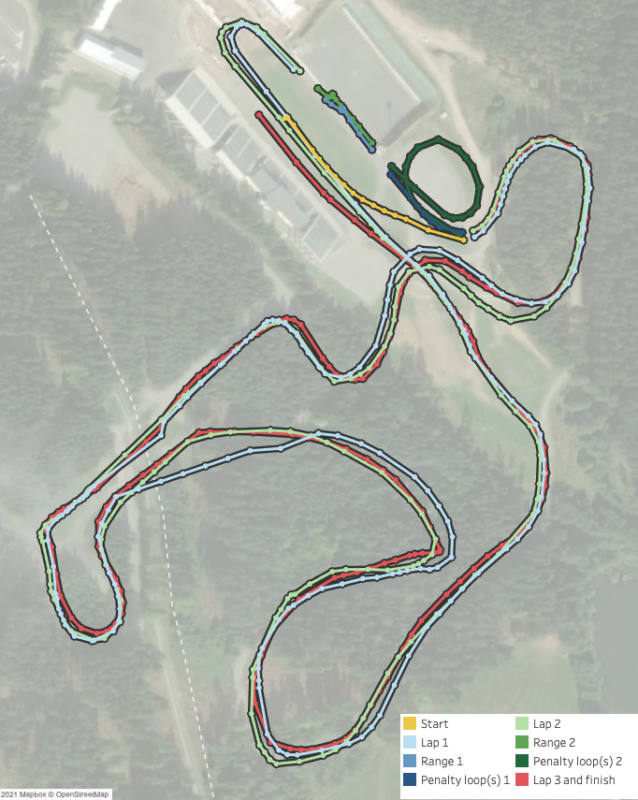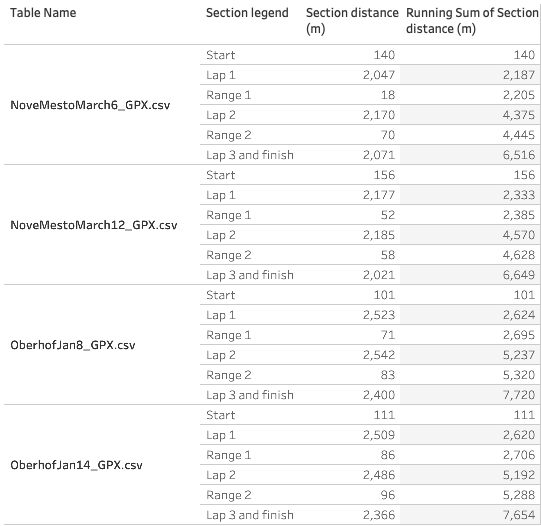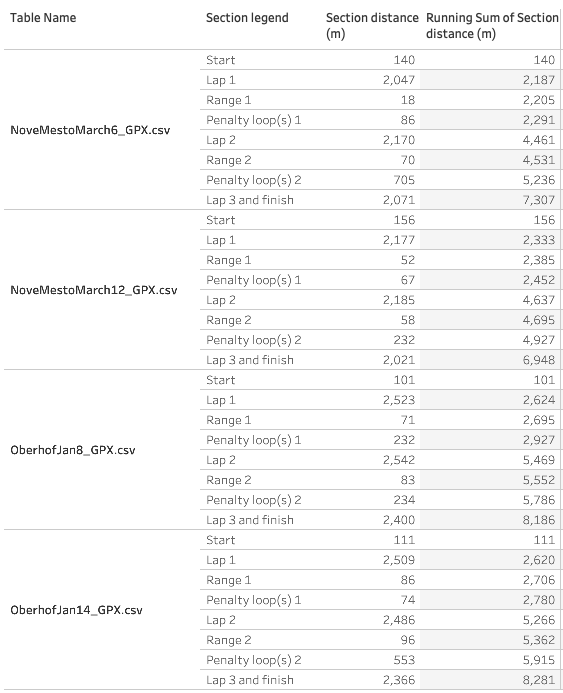On March 14 I wrote an article called “Is the IBU going the distance” in which I found that biathlon races typically don’t go the exact distance set for race events. The following is a follow up on that article, using GPS data from athlete Baiba Bendika (follow her on Twitter or Instagram) of her two races in Nove Mesto and two races in Oberhof. I should note that the GPS data from her Strava account (she kindly exported and send them to me) comes from her watch, not sure which brand, but the accuracy will not be perfect. But then again, it’s the best I can get when it comes to tracking the course.
First I read her data in Tableau and manually divided her GPS measurements (points) into sections like lap 1, penalty lap 2, range 2, etc.

This also allowed me to see her race in a “flat line” based on distance raced and time elapsed:


We already know how many penalty laps Baiba had, so we can take out the time spent in the penalty loops. This leaves us with the following distances:


Even if we include the penalty loops and decrease the distances by 150 per loop, we get:
- Nove Mesto on March 6: 7,307 – 600 = 6,707 (793 m under)
- Nove Mesto on March 12: 6,948 – 150 = 6,798 (702 m under)
- Oberhof on January 8: 8,186 – 300 = 7,886 (386 m over)
- Oberhof on January 14: 8,281 – 450 = 7,831 (331 m over)
Now we know that her watches’ GPS is not perfect, and that some of the penalty loop section (that overlaps the course) should be included, but even then our previous conclusion that the IBU doesn’t take the distance requirements all too serious is still correct, going both under (Nove Mesto) and over (Oberhof).
The main reason why this is important is that a lot of stats like ski speed and range time are often based on the assumption that ski distances and range sections are equal from race to race and location to location. Clearly, they are not and actual distances should be accounted for when available.
(Thank you Baiba for sharing your GPS files with me!)
